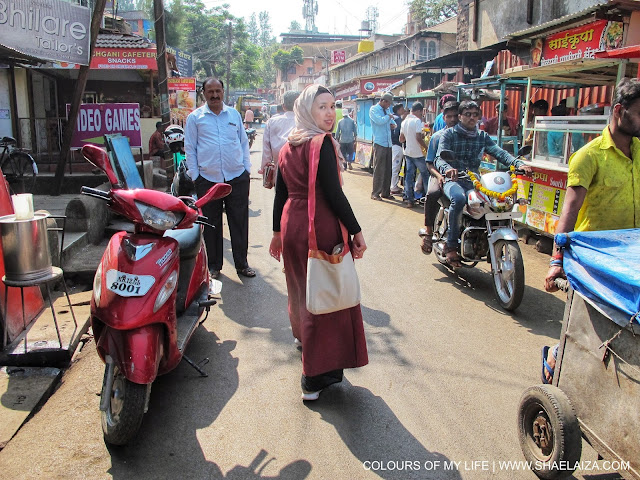Passage Through India
In January 2018, I was invited to spend a week in India by Initiatives of Change International (IofC) for a global meeting among its stakeholders. Not only was I looking forward to meeting IofC staff and volunteers I had worked with or heard about but I was happy to visit India for the first time. The meeting in Panchgani consisted of a highly diverse group of individuals, mostly long-time staff and members of the organisation, with people from countries such as Australia, the Netherlands, Kenya, Vietnam, Malaysia, Indonesia, England, the United States - you name 'em we had 'em.
I joined IofC because of my deep conviction that people who are different can work together if they want to and play a part, even if it is 'small', in alleviating the conditions of our society. Often times, it is who we are, individually and collectively, not our differences that get in the way of peace, harmony and progress. The things that are destroying our society are the things that destroy who we are as individuals first, such as pride, greed, fear and selfishness. Therefore, what is paramount is a close examination of who we are and to jumpstart changes that begin with and within us. Be the change you want to see in the world. Lead by example. These are nice ideas but how do we start to put them into practice? Perhaps we can begin with these 5 steps to personal change: conscience and conviction, coming clean, choice and commitment, community and continue.
As I reflect on my trip to India and the discussions we had about how to move forward with our goals and intentions these hopeful words by Marianne Williamson resonate with me.
"There comes a time, not too long into the journey to God, when the realisation that the world could work beautifully if we would give it the chance, begins to excite us. It becomes our new motivation. The news isn't how bad things are. The news is how good they could be."The way forward isn't to focus on how bad we are or how bad things are. It is to focus and work on how good things could be and to be grateful by acknowledging how good they already are.
"And as we let our own light shine, we unconsciously give other people permission to do the same. As we're liberated from our own fear, our presence automatically liberates others."
Doing what I do best: bustin' rhymes and droppin' beats 😎 Kidding!
I finally met Tracie in person after working together for a year. What would we do without the Internetz?
 Watching the sunrise at Asia Plateau, Panchgani was worth waking up at 5.30am and hiking up a hill covered in prickly plants for 45 minutes.
Watching the sunrise at Asia Plateau, Panchgani was worth waking up at 5.30am and hiking up a hill covered in prickly plants for 45 minutes.
The view of the valley from Mahabaleshwar transported me to Kenya for a moment.
These two posed well for the camera. I could tell it wasn't their first time. Work it, mama!
The cascading red flowers caught my attention. And auntyji's red sari. Achha achha.
Did anyone else think of Bo Kaap, Cape Town when they saw this? I sure did.
Panchgani is famous for its strawberries. Strawberry ice cream. Strawberry and cream. Strawberry jam. I'm not complaining.
Streets of Mumbai before I said goodbye.
My favourite photo from the trip 💙
Birds of a feather hang out on the same treetop together.
I was amazed by the clarity of the sunset I captured while the taxi zoomed to get me to the airport. It was the perfect ending to my trip.
The Orientalist may romanticise India by describing it as 'exotic' and 'rich with culture' but I saw it for what it is: an extension of home and a part of Asia that is just as nuanced, charming and complex as Malaysia. India's landscape was almost as diverse as its people and it wasn't home per se but it felt familiar. Perhaps it is because the ancient Malay archipelago was heavily influenced by Hinduism and Indian culture. Therefore, it's not far-fetched for me to say I returned to a part of my roots. A source of knowledge, hope and inspiration that meant a great deal to my ancestors. A place that shaped their identity, beliefs and practices and paved the way to my existence today.












Comments